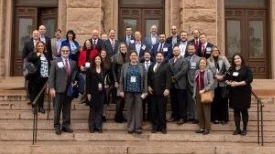1099-K Reporting is Coming
William Stromsem, CPA, J.D., George Washington University School of Business
In the recently released IRS Notice 2024-85, the IRS provided final “transition rules” for implementing the Form 1099-K reporting by third-party settlement organizations, such as Zelle, PayPal, StubHub and others that facilitate payments for various goods and services. Note that personal payments, such as payments to a family member or friend, should not result in a 1099-K.
The American Rescue Plan of 2021 would have required the forms to be sent out beginning in 2022 for 2021 payments over $600, but payors were not prepared to comply and the IRS was not prepared to process the many new forms that would be required. Since then, the IRS has repeatedly delayed implementation and now has announced a phase-in starting with a threshold of:
$5,000 in aggregate payments in 2024 payments that will be sent out early in 2025,
$2,500 for payments in 2025 to be reported early in 2026, and
$600 for payments in years after 2025.
The IRS has tried to implement the reporting requirements before but has repeatedly delayed enforcement and this could happen again, but don’t count on it—they now seem to be getting serious about implementation.
If a client receives a Form 1099-K, the payment must be accounted for on the income tax return. There may be initial glitches in matching reported payments with tax returns and, hopefully, these will be a minimum, particularly with the higher thresholds for 2024 payments as everyone gets used to the reporting. If the payment is for goods or services, these can be accounted for as business revenue hopefully offset by expenses on a Schedule C if the taxpayer is self-employed or an independent contractor. This may require a Schedule C for a new business if payments have been incorrectly ignored before. Note that the payment reported on the 1099-K is for the gross payment and it will all be taxable if the taxpayer does not claim expenses related to the production of the revenue.
If your client receives an erroneous 1099-K, they should contact the issuer and ask for a corrected form to avoid possible matching problems and keep records of correspondence in case the issue is raised by the IRS.


